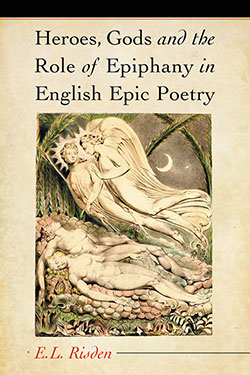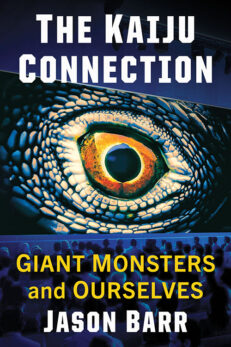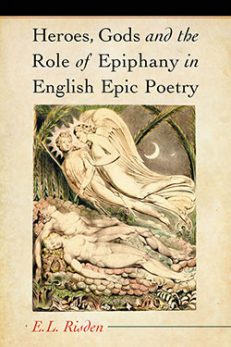Heroes, Gods and the Role of Epiphany in English Epic Poetry
$39.95
In stock
About the Book
This book examines how epic poetry reflects cultural values, and how, in epic poems, the heroes must meet supernatural beings to find answers to essential questions. It begins with three chapters on ancient poetry (including The Iliad and The Odyssey, the Mahabharata, the Epic of Gilgamesh, the Aeneid and the Bhagavad Gita). Subsequent chapters take up the main subject of the book, examining the evolution of English epic poetry from the anonymous Old English Beowulf to Spenser’s The Faerie Queen, Milton’s Paradise Lost, Blake’s Milton, Wordsworth’s The Prelude, Barett Browning’s Aurora Leigh and Derek Walcott’s 1990 poem Omeros.
About the Author(s)
Bibliographic Details
E.L. Risden
Format: softcover (6 x 9)
Pages: 210
Bibliographic Info: notes, bibliography, index
Copyright Date: 2008
pISBN: 978-0-7864-3541-8
Imprint: McFarland
Table of Contents
Preface 1
1. Epiphany and the Western Epic Tradition 9
2. The “Duty” Theme in the Epic Tradition 37
3. Epic Individualism 49
4. Beowulf and Sub-liminal Epic Epiphany 64
5. Epiphany and the Rhetoric of (Dis)Enchantment in Spenser’s Faerie Queene 75
6. Paradise Lost and the Resimplification of Epic Epiphany 93
7. William Blake and the Personal Epic Fantastic 109
8. Wordsworth’s Spots of Time: Romantic Epiphany and Nature Spectacular 118
9. Aurora Leigh: Victorian Epic and Woman’s Social Epiphany 142
10. Walcott’s Omeros: Postmodern/Postcolonial Epic Epiphanies 157
A Postscript on Tolkien and the Epic Novel, and a Conclusion 165
Chapter Notes 181
Bibliography 195
Index 201





